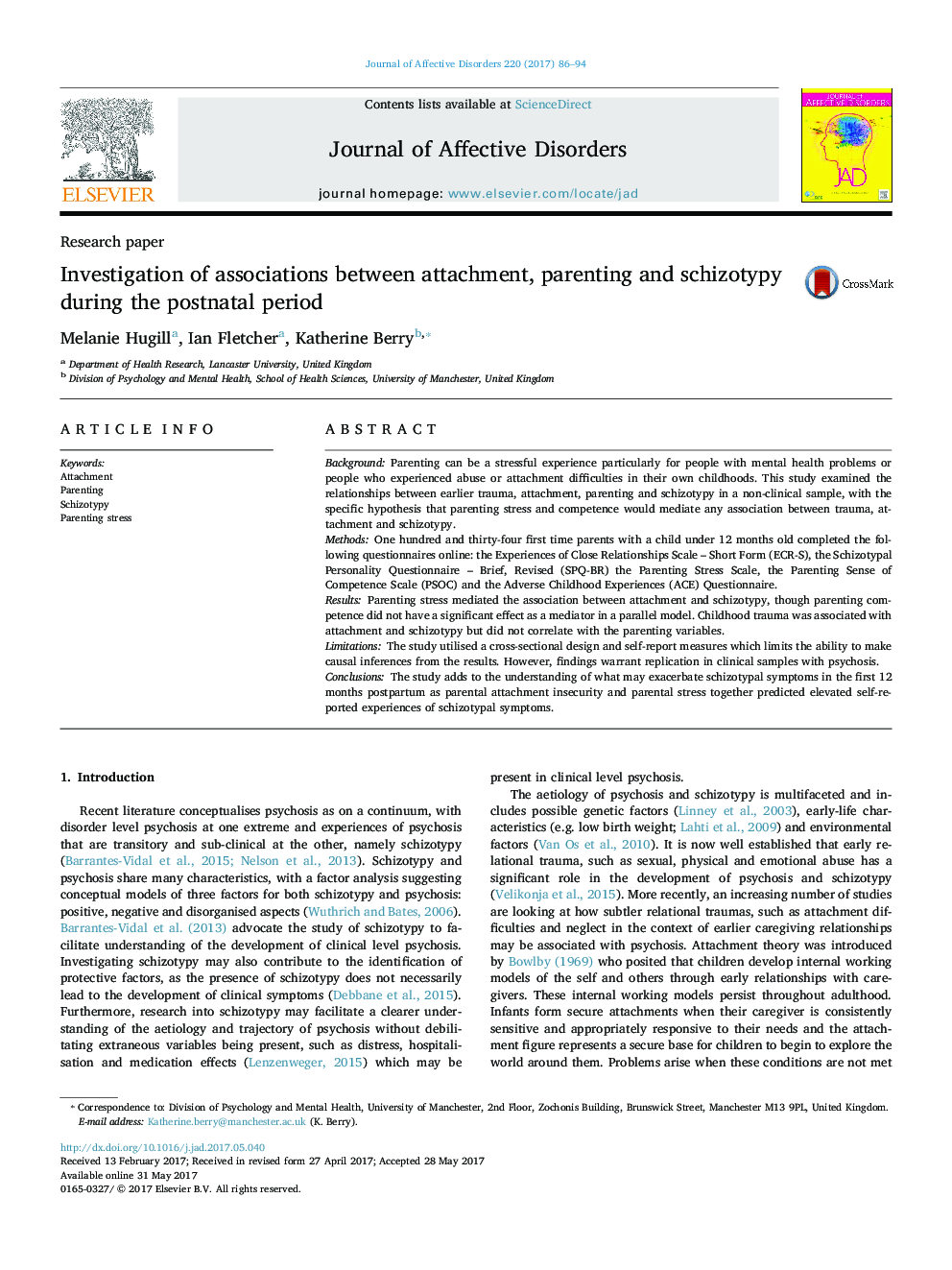| Article ID | Journal | Published Year | Pages | File Type |
|---|---|---|---|---|
| 5722161 | Journal of Affective Disorders | 2017 | 9 Pages |
â¢Insecure attachment is associated with schizotypy postpartum.â¢Insecure attachment is associated with more stressful parenting.â¢Parenting stress mediates the association between attachment and schizotypy.
BackgroundParenting can be a stressful experience particularly for people with mental health problems or people who experienced abuse or attachment difficulties in their own childhoods. This study examined the relationships between earlier trauma, attachment, parenting and schizotypy in a non-clinical sample, with the specific hypothesis that parenting stress and competence would mediate any association between trauma, attachment and schizotypy.MethodsOne hundred and thirty-four first time parents with a child under 12 months old completed the following questionnaires online: the Experiences of Close Relationships Scale - Short Form (ECR-S), the Schizotypal Personality Questionnaire - Brief, Revised (SPQ-BR) the Parenting Stress Scale, the Parenting Sense of Competence Scale (PSOC) and the Adverse Childhood Experiences (ACE) Questionnaire.ResultsParenting stress mediated the association between attachment and schizotypy, though parenting competence did not have a significant effect as a mediator in a parallel model. Childhood trauma was associated with attachment and schizotypy but did not correlate with the parenting variables.LimitationsThe study utilised a cross-sectional design and self-report measures which limits the ability to make causal inferences from the results. However, findings warrant replication in clinical samples with psychosis.ConclusionsThe study adds to the understanding of what may exacerbate schizotypal symptoms in the first 12 months postpartum as parental attachment insecurity and parental stress together predicted elevated self-reported experiences of schizotypal symptoms.
